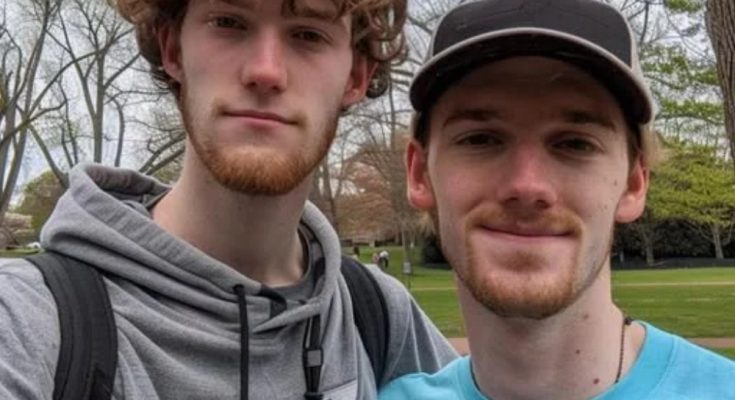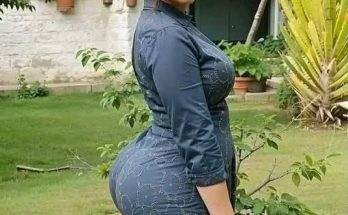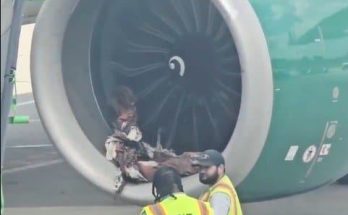I always thought my life made sense. I was the only kid in a small, snug family of three, wrapped in the kind of attention you read about in parenting blogs. If I so much as mentioned a new game in passing, Dad “surprised” me with it a week later. Mom knew my coffee order before I did. It was simple, warm, predictable—like a favorite hoodie you never wash on hot because you don’t want it to shrink. That was my life at 18. And then a DNA test blew straight through it like a storm siren at 3 a.m.
It started as a joke gift to myself on my eighteenth birthday. One of those ancestry kits that tells you you’re two percent Viking and three percent mysteries-of-the-ancient-steppe. I wasn’t hunting for long-lost relatives or seeking an origin story. I was bored and curious, refreshing my email like a maniac while Mom yelled from the kitchen that I’d dig a groove in the floor if I kept pacing. When the notification finally landed, I felt a fizzy kind of excitement—until the screen loaded.
Close match: brother. Name: Daniel.
I decided to ask Dad first—he’s the one who cracks jokes when things get tense and somehow makes everything normal again. I caught him as he came in from work, tie loose, smile ready. “Hey, Dad,” I said too casually, “do you know anyone named Daniel?”
It was like watching a candle go out. The warmth left his eyes, and something tight and sharp replaced it. He glanced toward the kitchen to make sure Mom wasn’t in earshot and lowered his voice. “Don’t tell your mother,” he said. “Years ago, I… made mistakes. An affair. If she finds out, she’ll leave.” He touched my shoulder like a man pleading and asked me to keep it quiet.
I nodded because I didn’t know what else to do. But upstairs, staring at the ceiling, the explanation wouldn’t settle. It felt thin, patched. Maybe it was the way he’d said the words, like he was reading them off a page. Or maybe it was the sudden gulf between the Dad I knew—who taught me to ride a bike and burned pancakes on Sunday—and a man asking me to carry his secret.
I messaged Daniel.
I wasn’t expecting him to reply at all, let alone so fast. His first line—Billy? Is it really you?—made my chest ache with an emotion I couldn’t name. We agreed to meet the next day at a café downtown. I told Mom I was grabbing burgers with a friend. I told myself I was just confirming a clerical error.
I knew him the second I saw him. Not because we were identical—we weren’t. But there was a mirror-flash in the eyes, in the way he stood, like we’d both learned to make ourselves look a little bigger than we feel. He stood up when I approached, searching my face the way I searched his. “Billy?” he asked. I nodded because words had turned thick and useless.
We ordered coffees we didn’t drink. Silence sat between us like a carefully placed box. He opened it first. “You remember the lake by our old place?” he said, smiling. “We used to throw rocks and see who could make five skips. The swing set near the oak always squeaked.”
“I think you’ve got the wrong guy,” I said. “We never lived together.”
His smile faltered, then disappeared. “You don’t remember the fire?” he asked quietly. “The night the house went up? You pulled me out.” He swallowed. “Our parents didn’t make it.”
It felt like the café tilted. He kept talking, words steady, eyes shining. After the fire, he said, he’d been placed with relatives. I’d been adopted. There were rules then, papers signed, lines he wasn’t allowed to cross. He’d looked for me anyway. He’d run searches at different ages, tried variations of my name, checked alumni pages. The test was the first time the universe had tossed him a rope.
I shook my head because none of it fit in the life I knew. “My dad told me you were… the result of an affair,” I said. The lie tasted sour the second I spoke it out loud.
“Billy,” he said gently, “I remember your favorite shoes. I remember the dog—Scruffy—who stole socks. I remember you saying our mom sang off-key and our dad danced like a lawn sprinkler. I remember being five and thinking you were a superhero because you didn’t cry when you got stitches.”
I left with a headache and an armful of questions. At home, my parents laughed over a cooking show. The house smelled like garlic and lemon. My life looked exactly like it always had, except now a seam had split and I couldn’t pretend I didn’t see the stuffing. I told myself to drop it. Then I found myself in Dad’s office, hands shaking as I opened a lower drawer he always kept locked.
The folders were old, the edges softened by years. There it was: the address of a small apartment building and a stack of legal papers detailed in careful, lifeless language. The gist made my stomach lurch. Faulty wiring. Multiple complaints. Repairs postponed because the cost was “prohibitive.” A fire. Casualties. A lawsuit. My parents’ names on pages where plaintiffs usually go. A settlement. And tucked behind it, adoption documents with my new last name typed neatly where my first family’s had been crossed out. The timeline ran like a conveyor belt: fire, liability, adoption. Tie a bow, cut the ribbon, call it fate.
I sat on the floor with the papers scattered around me like a crime scene I couldn’t unsee. The narrative clicked into place with an awful finality. My parents weren’t just my parents; they were the landlords whose negligence had turned a building into a matchbox. They hadn’t adopted me because the universe wove threads with love and serendipity. They had adopted the boy who could one day be a lawsuit with legs.
When they came home, I didn’t bother to ease into it. I stood at the counter with the papers in my hand and asked, very calmly, what had happened to the building they used to own. Dad looked at the documents and went pale. He started to say it was complicated, that memory is cruel and time distorts. He reached for words like “tragedy” and “youth” and “mistake,” and each one slid off the truth like rain off a window.
I heard my voice ask a question I already knew the answer to: “Am I adopted?” Mom’s hand flew to her mouth. Dad closed his eyes. The silence said yes. The papers said why.
I didn’t pack much. A duffel with clothes, a toothbrush, the game console Dad had given me “for no reason.” He tried to apologize at the door, and there was pain on his face that wasn’t performative. He said they’d loved me, that the rest didn’t erase the real. Love and motive wrestled in my head like boxers. I told him I needed time, which was the truest sentence I had.
Daniel opened his apartment door like we were late to something important. He’d made too much pasta and bought the wrong kind of salad dressing and set out an extra fork. It felt like stepping into a room I’d visited in dreams. We ate and didn’t talk for a long time. Then he said, very softly, “They took you to keep you from me.” It wasn’t an accusation so much as a wound laid on the table. I didn’t know how to answer. I said I was sorry for not remembering the lake, the swing, Scruffy, the stitches. He smiled at me like memory isn’t the only proof that something happened.
The days after were weirdly practical. I forwarded my mail. I texted Mom that I was safe. Dad sent messages that read like someone learning to confess and tripping on every verb. I put the test result in a folder with the legal documents and, for the first time, my life had two sections. There’s the childhood I lived—soccer practice, pancakes, Christmas pajamas—and the childhood I lost, which would have been loud and messy and still mine.
I don’t have a clean moral to hang on the story yet. I don’t know whether I’ll forgive my parents, or how, or when. I know people can love you and still do something unforgivable. I know truth arrives on its own clock. I know that grief can be for someone alive, and for someone you don’t remember, and for yourself. I also know that when Daniel laughs, I hear an echo in my own chest, like we’re made of the same wood.
The DNA test didn’t just hand me facts; it handed me a brother who remembers the past I don’t. He tells me about a squeaky swing and a dog with bad manners, about a kid version of me who was braver than I feel right now. His memories aren’t proof I’m worthy—they’re proof I belong to something beyond a paperwork trail. We’ve started making new ones: a café we can claim, a dumb inside joke about how we both hate olives, a plan to visit that lake and see if the water still skips right.
Maybe one day I’ll sit across from Mom and Dad and we’ll talk about the difference between doing the right thing and covering your tracks with a child’s life. Maybe I’ll hear what fear did to them. Maybe I’ll say out loud that love can be real even when its origin is rotten. Until then, I’m letting the shock settle and the anger cool into something I can carry without it burning my hands. I’m learning that identity isn’t just what’s handed to you, but what you decide to keep.
For now, I am Billy, older brother to a man who looks like me and remembers for both of us. I’m the kid who grew up in a house of secrets and the young adult who opened a locked drawer and walked out with the truth. I’m not anyone’s liability. I’m someone’s family. And however the rest of it shakes out, that’s my starting point.



